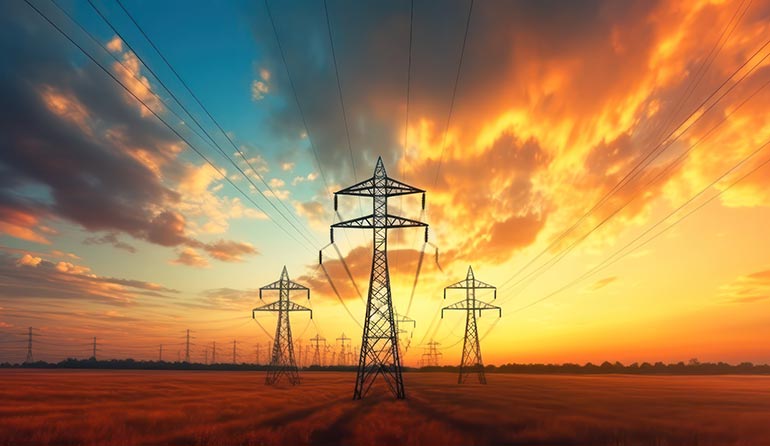Demand-side flexibility could offer major savings
8th November 2023
DENMARK: The roll-out of demand-side flexibility technology in the EU and UK could achieve annual societal cost savings of €10.5bn by 2030, and 7% savings on household electricity bills.
The new analysis in a report commissioned by Danish manufacturer Danfoss maintains that an ambitious but realistic roll-out of demand-side flexibility technology in the EU and UK could save 40 million tonnes of CO2 emissions each year by 2030, more than Denmark’s domestic climate footprint.
Additionally, the EU and UK can achieve an annual societal cost savings of €10.5bn by 2030 and €15.5bn by 2050. In the US, it is estimated that optimising efficiency, demand flexibility, and electrification in buildings could save up to $107bn in annual power costs, alongside a 91% reduction in carbon emissions from buildings by 2050.
Demand-side flexibility would level out energy consumption to prevent periods of simultaneous high demand and low supply, which is especially important for an energy system based on renewables. The deployment of demand-side flexibility technologies can lower demand during expensive peak hours and reduce the amount of fossil fuels in the energy mix.
Resilience
During the recent energy crisis, EU countries earmarked €681bn and the UK £90bn (€103bn) in response. According to Danfoss, rolling out demand-side flexibility technologies could make the grid more resilient and reduce the need for government subsidies at this scale. It also has vast potential to save money at both a societal and consumer level. Across the EU and UK, the average consumer could save 7% on their electricity bill by 2030 and 10% by 2050, Danfoss says.
“We are leaving the fossil fuel era, but we haven’t prepared our energy system for the future because we are neglecting energy efficiency as one of the main tools to lower emissions,” commented Danfoss president and CEO Kim Fausing. “The grid is not ready to use all the renewable energy we are making rapid progress to produce. We must take steps to utilise energy efficiency solutions – such as demand-side flexibility technologies – that not only help us to use less energy, but to use the right energy at the right time. We have the solutions, but we need action.”
It is estimated that in buildings, for instance, AI-driven technologies could save up to 20% in a building’s energy costs by combining building, weather, and user data to predict heating and ventilation demand. Recent observations on 100,000 flats equipped with this technology, based mainly in Finland, showed that the maximum power usage was reduced by 10-30%.
Load-shifting could also be automated to cool supermarket freezers down to a much lower temperature than required outside the peak demand hours with the freezers effectively operating like a battery storing energy. This “supercooling” technique means refrigerators could be switched off during the peak hours of energy demand, both lowering stress on the grid and saving money for the supermarket.
Rethink
“We need to rethink energy efficiency and place it at the centre of the race towards full decarbonisation. This means enabling the electrification of end-uses not previously served by electricity. It also means creating a highly flexible energy system to avoid carbon-intensive demand peaks,” said Nick Eyre, Professor of Energy and Climate Policy at Oxford University in the UK and senior research fellow in energy at the Environmental Change Institute.
“Historically, energy efficiency has delivered the largest share of greenhouse gas mitigation and reinventing it for the era of renewables will enable us to continue this trend and achieve net zero by 2050,” he added.
Toby Morgan, senior manager, Built Environment at Climate Group, insists that electrification can provide a flexible grid fit for the future, energy efficiency cannot ge ignored. “The greenest form of energy is saving energy, and efficiency means we need fewer wind farms and fewer battery facilities,” he said.
“AI can help turbocharge progress on energy efficiency, optimising electricity usage for any given time of day. Yet AI’s role in connecting up climate-smart technologies in one integrated, energy efficient building is where it gets really exciting. AI can optimise the use of rooftop solar when it’s sunny, make decisions on when to draw on the building’s battery storage, or the batteries of EVs plugged into its charging points when it’s not, plus choose an optimum time to sell renewable electricity back to the grid when demand is high.”
A new Danfoss whitepaper on the subject – Energy Efficiency 2.0: Engineering the Future Energy System – is available for download here.







